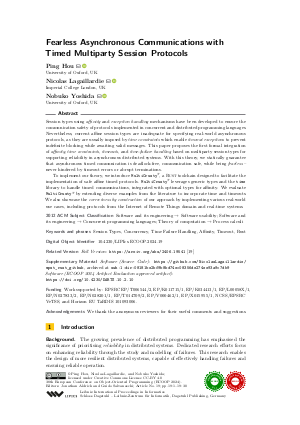LIPIcs.ECOOP.2024.19.pdf
- Filesize: 1.58 MB
- 30 pages

 Creative Commons Attribution 4.0 International license
Creative Commons Attribution 4.0 International license






Feedback for Dagstuhl Publishing